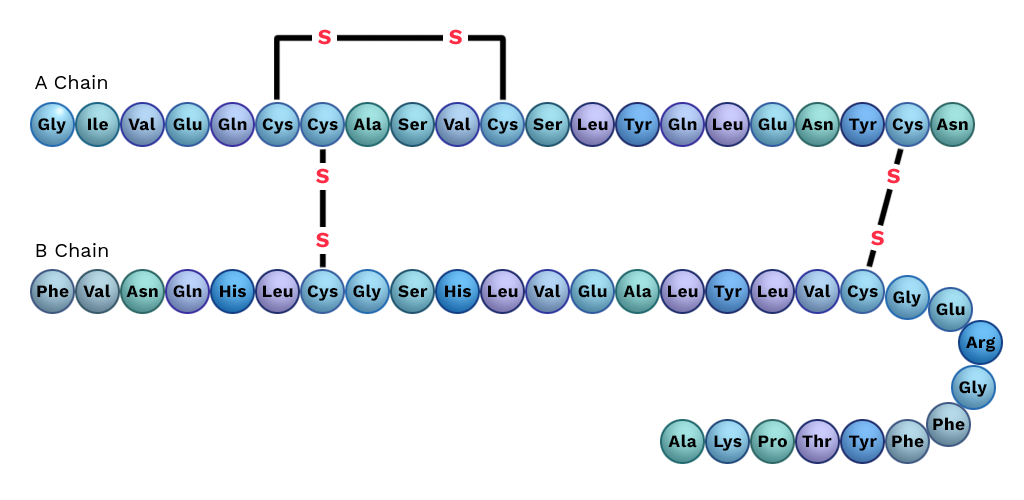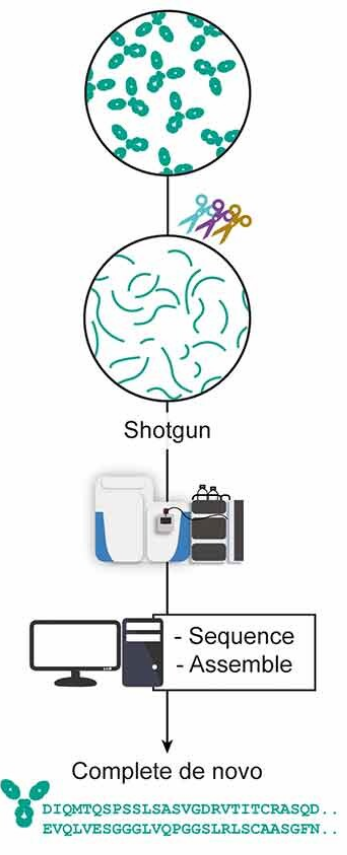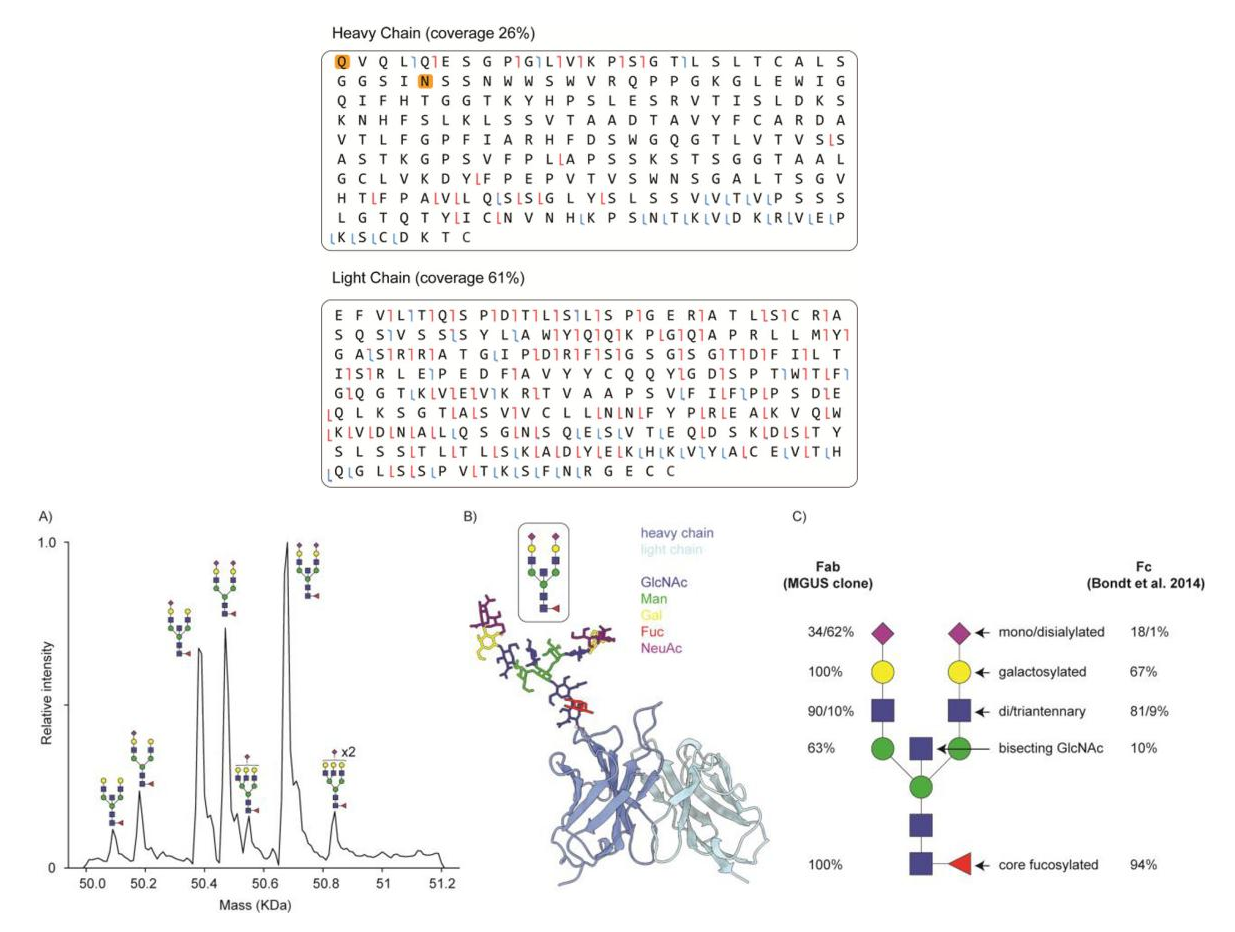Protein Sequencing Services
Protein sequencing directly reveals the amino acid sequence of proteins, which is fundamental to understanding their structure and function. Currently, protein sequencing services primarily utilize mass spectrometry-based de novo sequencing, Edman degradation, and nanopore sequencing, with the most common method being mass spectrometry-based de novo protein sequencing. De novo protein sequencing is a novel sequencing technology that does not rely on any known sequence or protein database information, directly determining the amino acid sequence of proteins. This technique is especially important for the identification of novel proteins. After protein sequencing, it is possible to predict the protein’s three-dimensional structure, further elucidating its biological function and interaction mechanisms. This is of significant importance for protein drug production, uncovering the mysteries of life activities, and understanding the onset and development of diseases.

Balamurugan M et al.International Journal of Diabetes in Developing Countries,2025
Figure 1. One of the applications of protein sequencing: protein drug quality control.
Services at MtoZ Biolabs
Based on mass spectrometry technology combined with advanced data analysis, MtoZ Biolabs offers protein sequencing services that use mass spectrometers to collect peptide amino acid sequence data, specifically from MS/MS spectra. Using de novo sequencing algorithms, the peptide sequences are directly derived from the MS/MS data, and after sequence assembly, the complete amino acid sequence of the protein is obtained. The technical workflow for mass spectrometry-based protein sequencing includes: sample preparation → protein digestion → peptide separation → mass spectrometry detection → data analysis.
MtoZ Biolabs, leveraging existing expertise and professional background, has developed proprietary software for mass spectrometry-based protein sequence analysis. This software features self-developed mass spectrometry raw data calculation methods, employing the wide-in narrow-out principle, which ensures accurate identification of antibody/protein sequences while retaining all relevant data without omissions. Our protein sequencing services cover the following areas:
1. Mass Spectrometry-Based De Novo Sequencing Services
Our mass spectrometry-based protein sequencing services primarily utilize de novo sequencing technology, where an algorithm based on deep learning sequence models directly analyzes the amino acid composition and sequence order of peptides from MS/MS spectra. De novo sequencing technology enables us to precisely distinguish peptide amino acids and quantitatively analyze the abundance levels of different peptides in protein samples.
MtoZ Biolabs uses Thermo's Orbitrap series mass spectrometers in combination with Nano-LC systems to provide protein sequencing services to ensure high-precision and high-sensitivity data collection. The combination of these technologies allows us to accurately analyze peptide amino acid composition, sequence order, and abundance, providing precise peptide-level results for full-length protein sequencing.
2. Graph Theory-Based Sequence Assembly Services
In addition to de novo mass spectrometry sequencing, we use a graph theory-based sequence assembly algorithm to accurately reconstruct full-length protein sequences.

Graaf, SCD et al. mAbs, 2022.
Figure 2. Overview of protein sequencing methods.
Service Advantages
1. Advanced Analytical Platform
MtoZ Biolabs has established an advanced protein sequencing services platform, ensuring reliable, fast, and high-precision analysis services.
2. Transparent Pricing
Our pricing is transparent with no hidden or additional fees.
3. High Data Quality
We offer deep data coverage and strict data quality control. Our AI-driven sequencing platform ensures full-length coverage and accuracy, providing comprehensive data reports to our clients.
Sample Submission Suggestions
1. Sample Type
Protein purity must be greater than 90%, and the total protein amount must exceed 100 µg. For antibodies, purity must be greater than 90%, and the total antibody amount must exceed 100 µg.
2. Sample Volume
For protein solutions, please specify the buffer used. For gel samples, at least 10 µg per well, with a minimum of 6 wells.
3. BSA
Samples should not contain excessive BSA. If present, please note the concentration.
*Note: If you have any special requirements or if your sample does not meet the above criteria, please contact us.
Applications
1. Antibody/Protein Discovery
Protein sequencing technology can detect overexpressed, disease-related, and individual-specific antibody proteins, which can serve as disease biomarkers.
2. Protein Drug Quality Control
Protein sequencing analysis can identify mutated amino acids and degradation sites in protein drugs.
3. Protein/Antibody Production Monitoring
Protein sequencing can confirm whether protein/antibody products are expressed according to the expected sequence.
4. Antibody Reverse Engineering
Due to the lack of transparency from antibody product suppliers, sequencing antibody proteins can help develop recombinant antibodies, maintaining stability and reducing costs.
5. Engineered Enzyme Modification
Protein sequencing services can assist in identifying key amino acids that affect enzyme stability, affinity, and active sites.
Case Study
1. Discovery of Disease Biomarker Protein Using Mass Spectrometry-Based De Novo Sequencing
Monoclonal Gammopathy of Undetermined Significance (MGUS) is a plasma cell disorder characterized by the presence of a dominant monoclonal antibody (M-protein) in the serum. The authors used LC-MS/MS to analyze the IgG1 type M-protein in human serum. The M-protein was digested with various proteases, and de novo sequencing was employed to analyze the antibody peptides. After peptide assembly, the complete heavy and light chain sequences of the M-protein were determined. Additionally, the glycosylation level of the antibody's CDR region was characterized.
This case demonstrates how MS-based protein sequencing services were used to sequence the M-protein, a biomarker for MGUS, and analyze post-translational modifications.

Albertj. et al. Journal of Proteome Research, 2023.
Figure 3. Top-down LC-MS/MS data of Fab glycosylated M protein and N- glycosylation of MGUS Fab.
Deliverables
1. Comprehensive Experimental Details
2. Materials, Instruments, and Methods
3. Quality Control Evaluation
4. Protein/Antibody Sequences
5. Supporting Evidence of Sequences from Secondary Spectra
6. Raw Data Files
MtoZ Biolabs, an integrated Chromatography and Mass Spectrometry (MS) Services Provider, provides advanced proteomics, metabolomics, and biopharmaceutical analysis services to researchers in biochemistry, biotechnology, and biopharmaceutical fields. Our ultimate aim is to provide more rapid, high-throughput, and cost-effective analysis, with exceptional data quality and minimal sample consumption. Free project evaluation, welcome to learn more details!
MtoZ Biolabs, an integrated chromatography and mass spectrometry (MS) services provider.
Related Services
How to order?







